The Flax Meitheal - some reflections
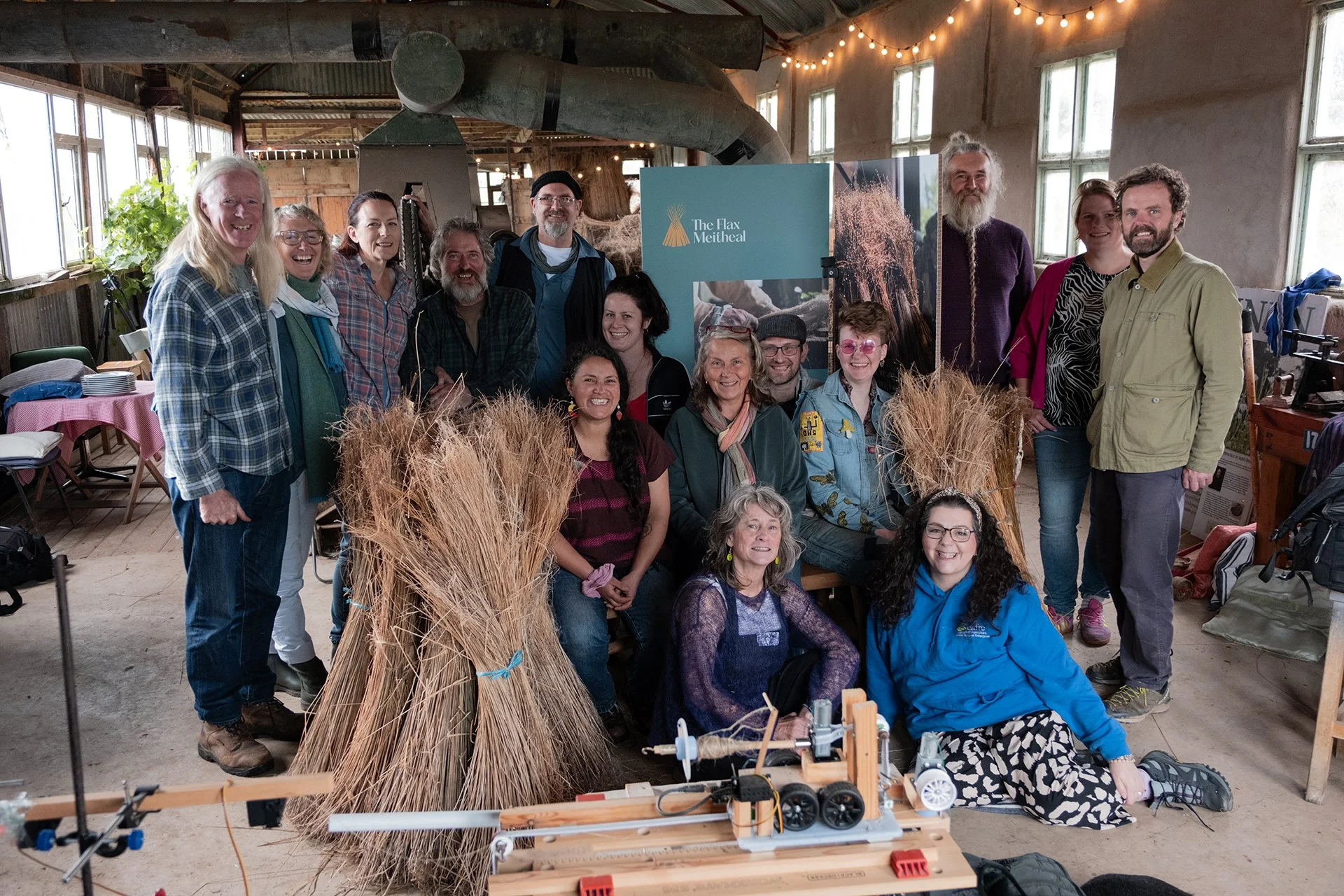
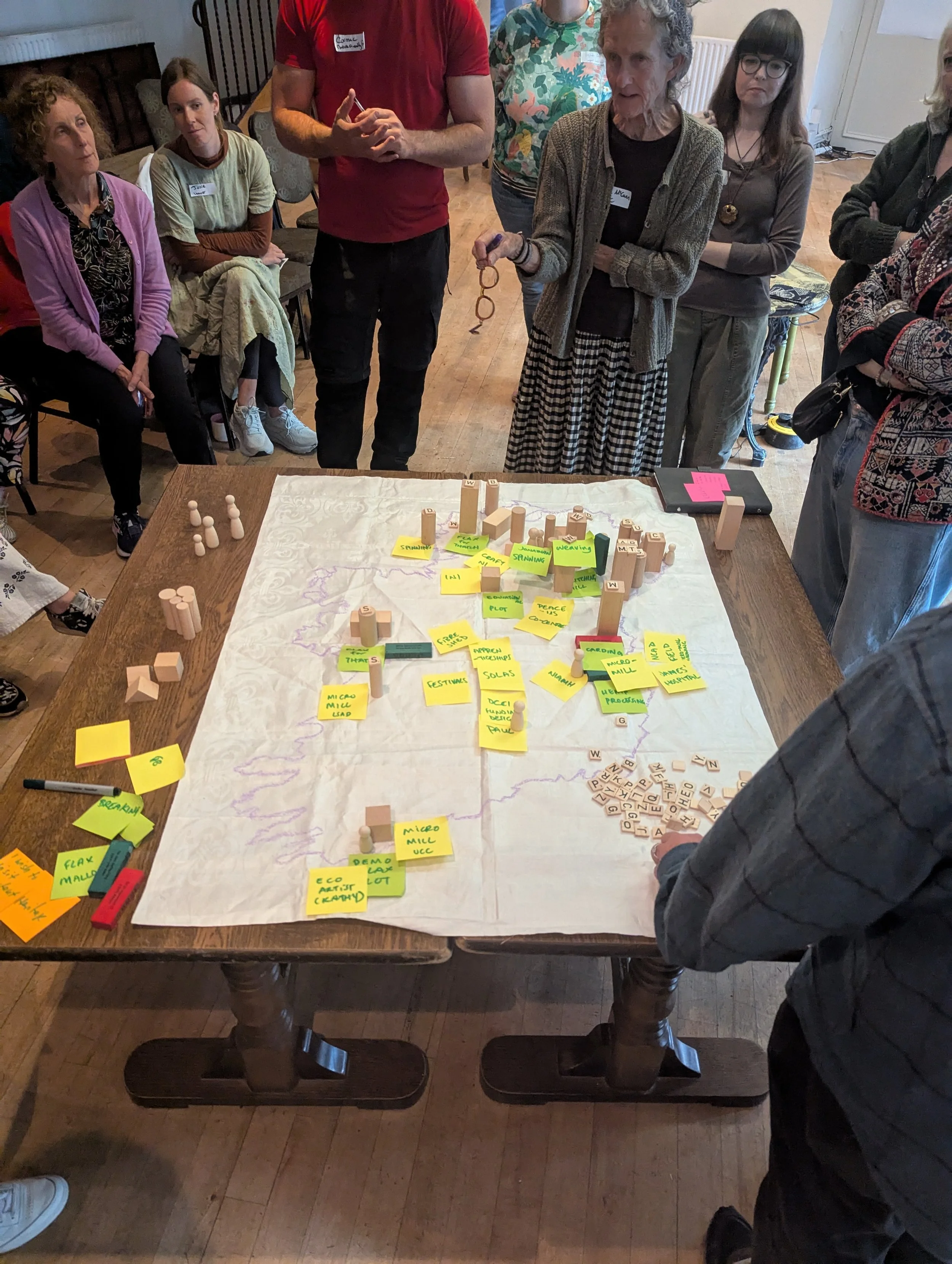
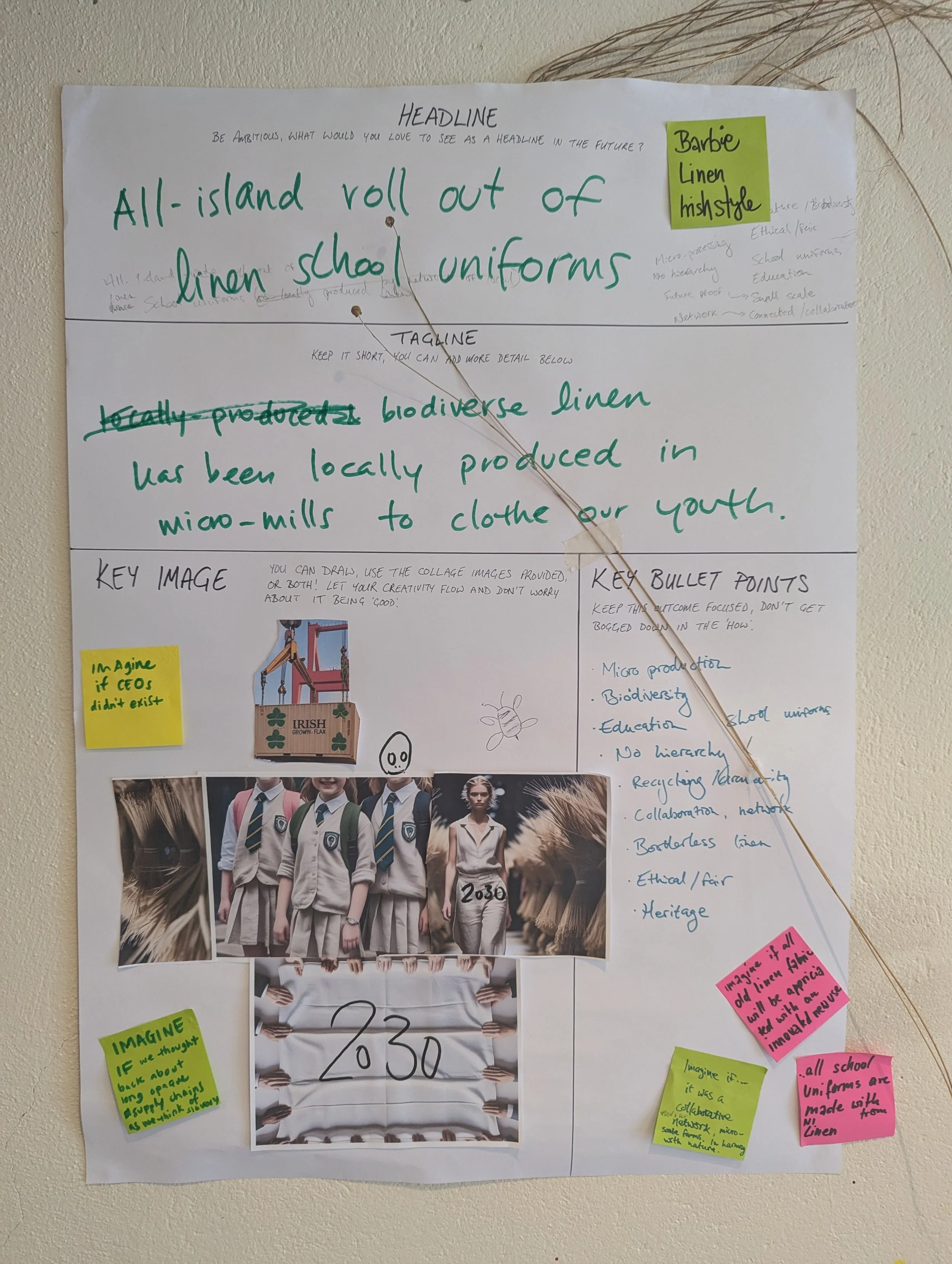
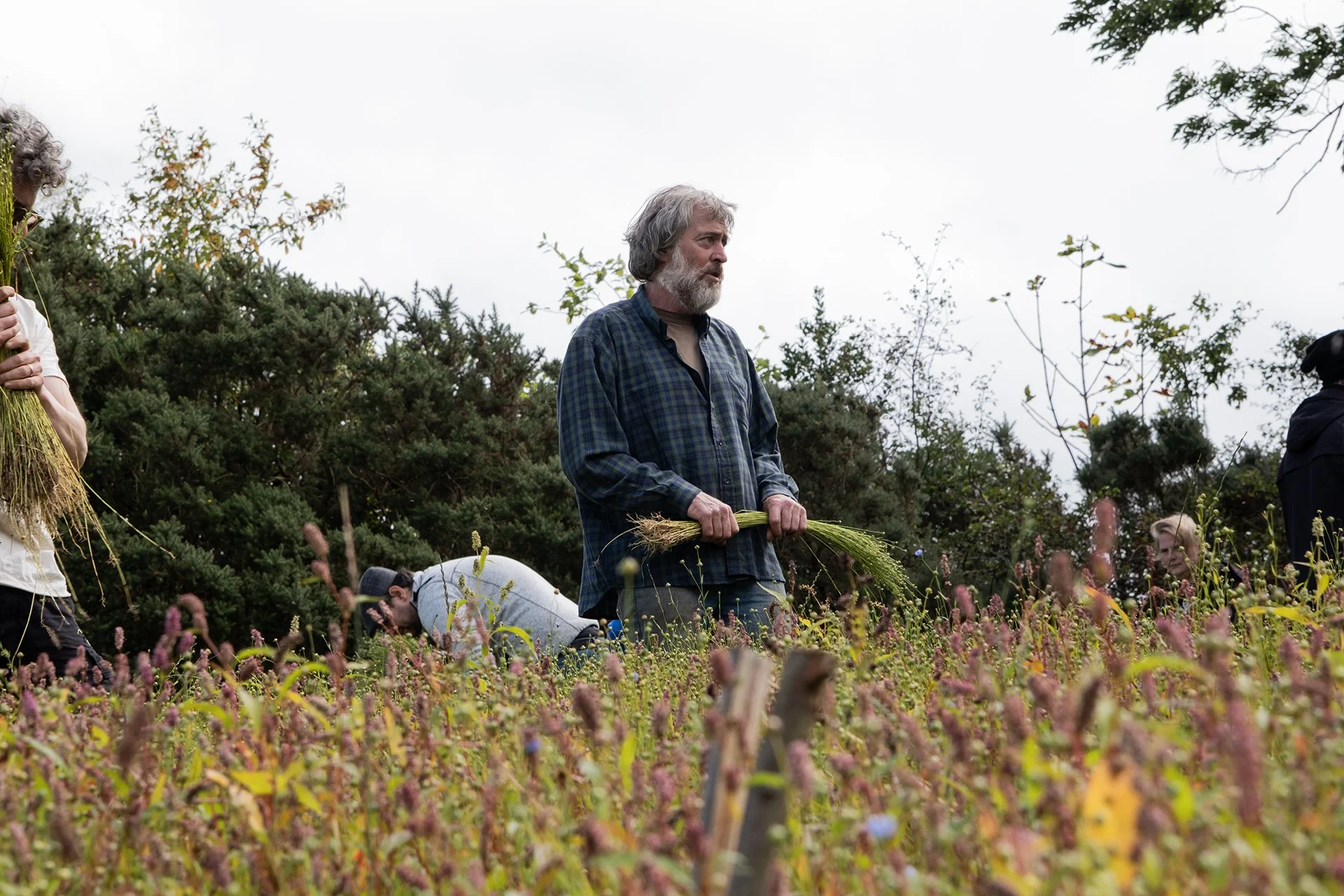
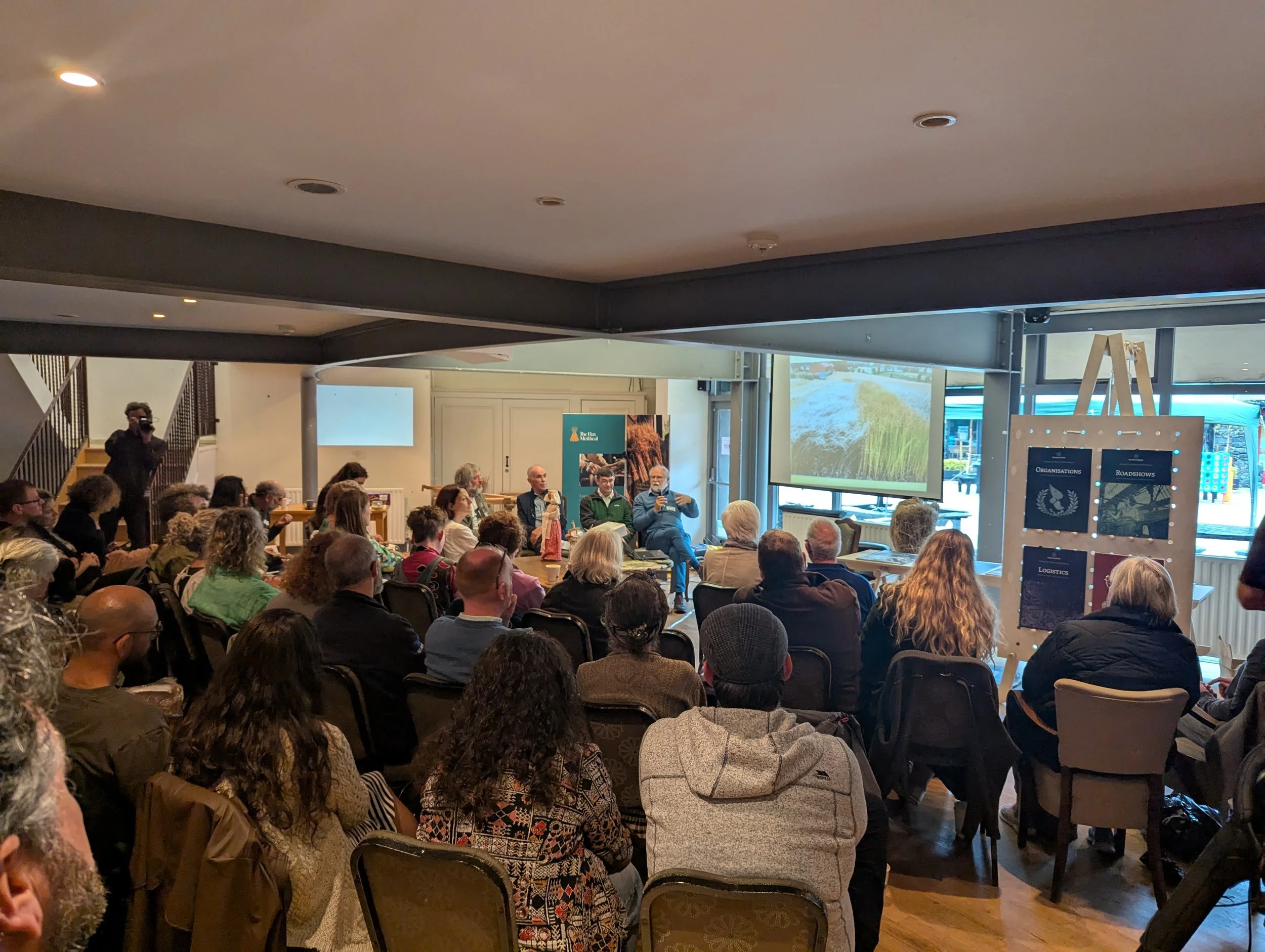
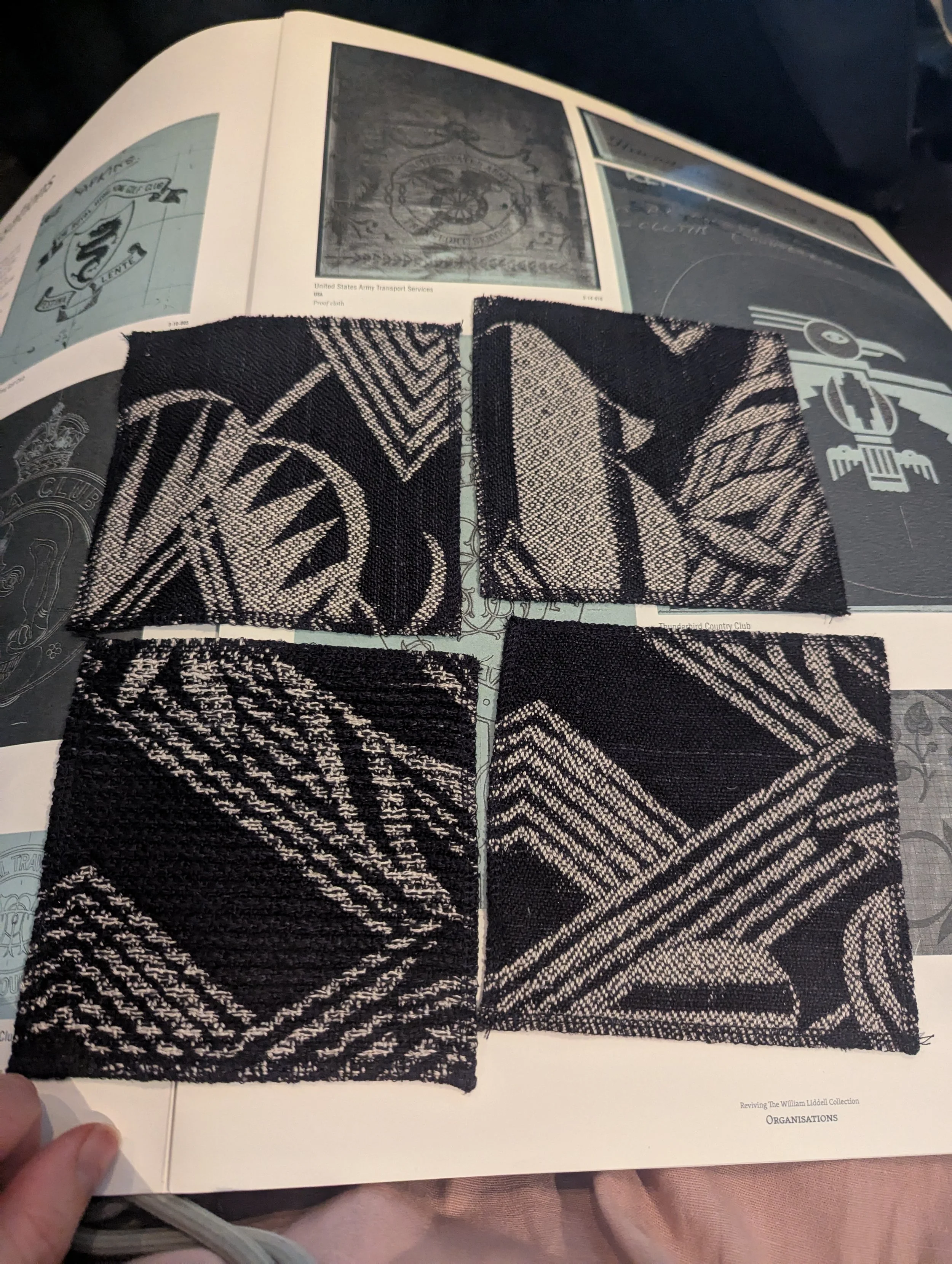
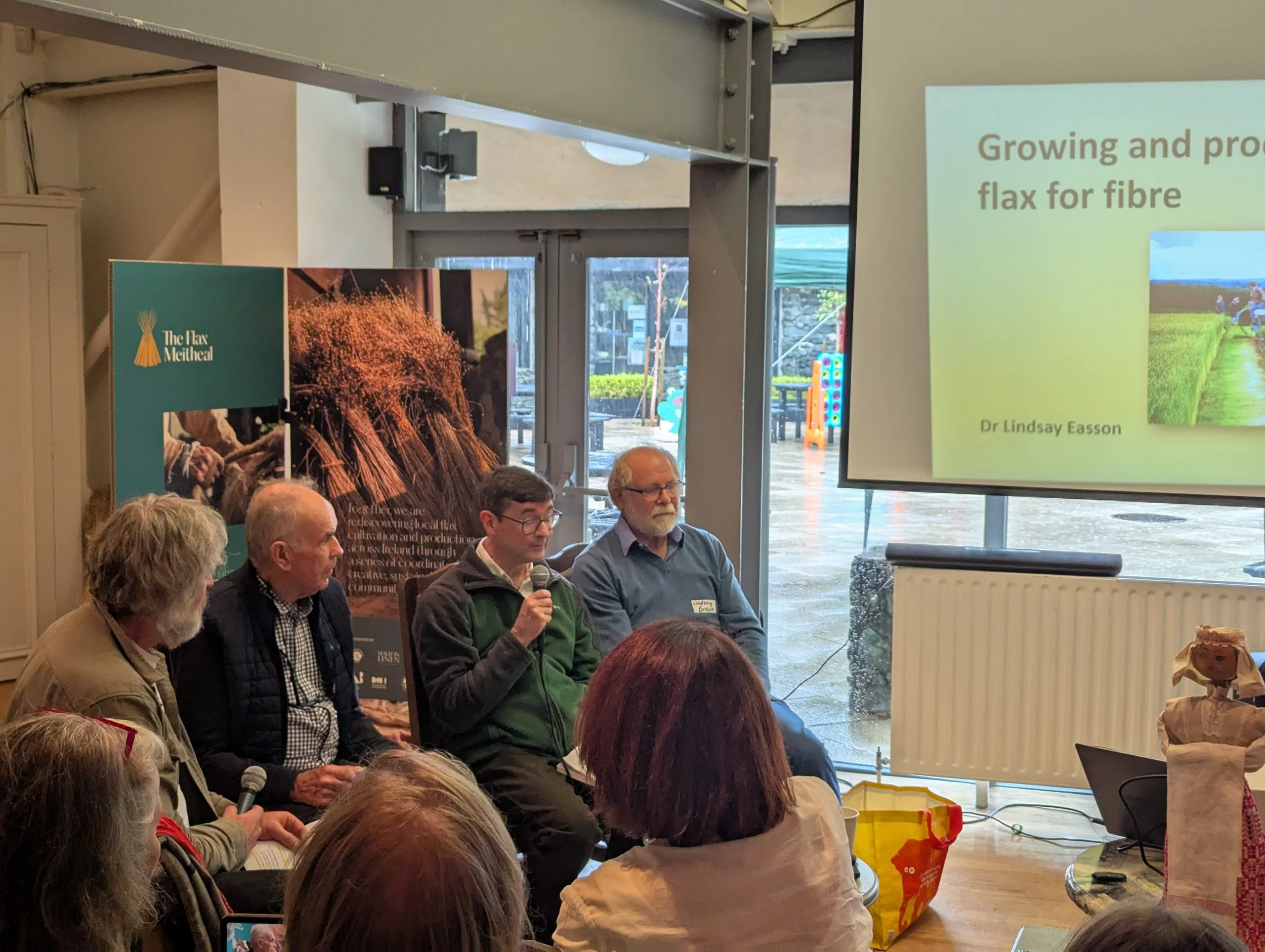
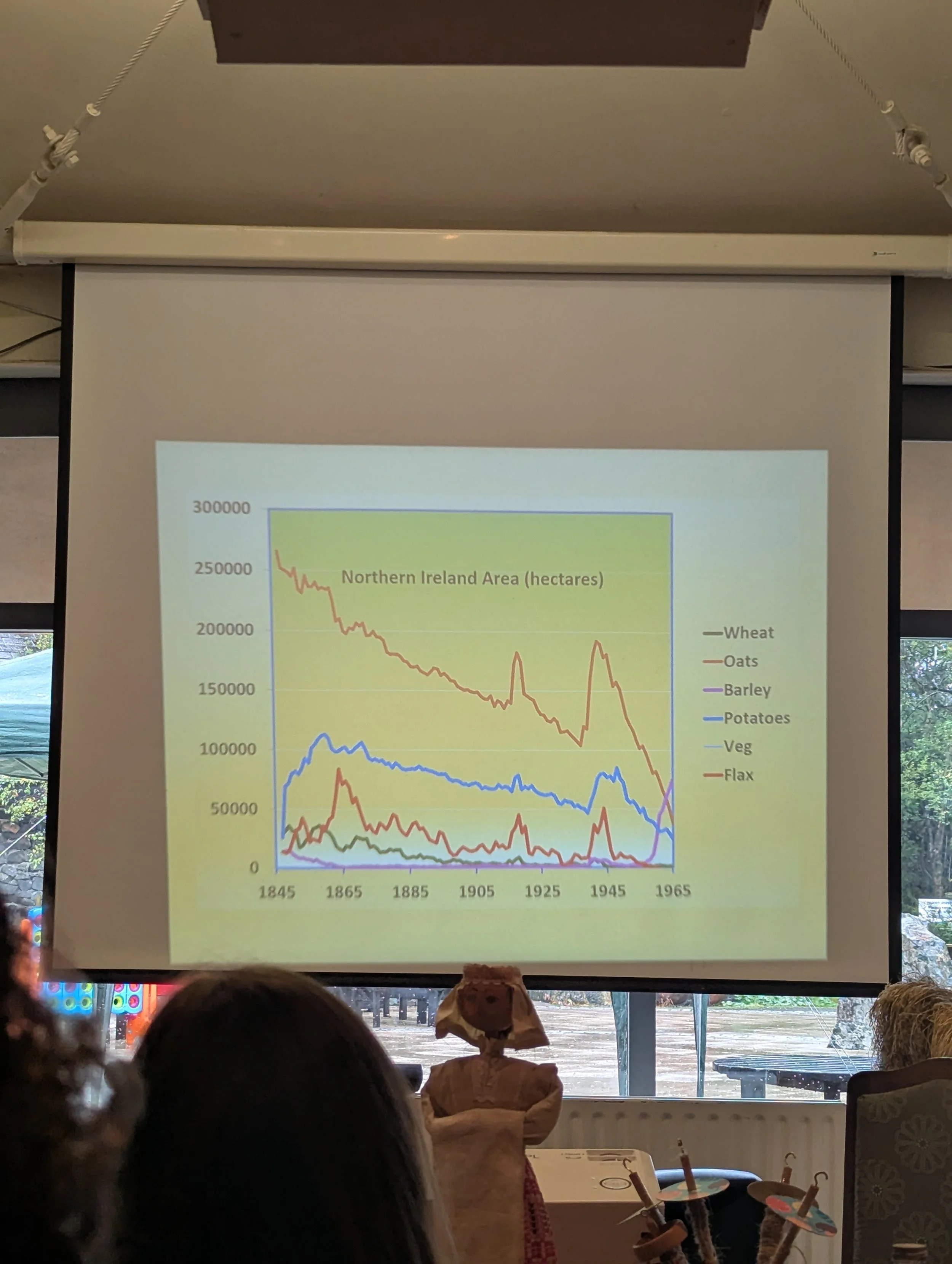
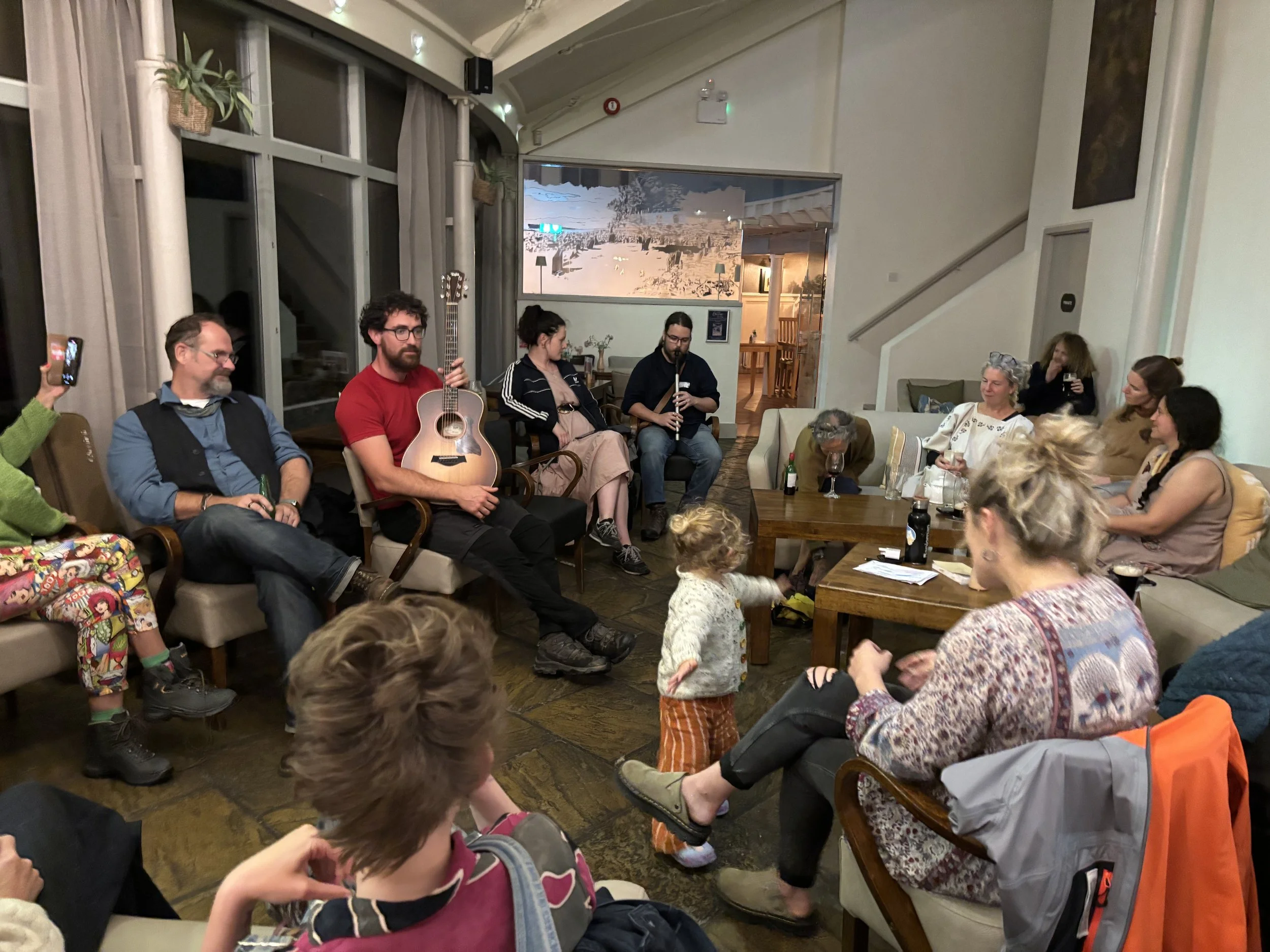
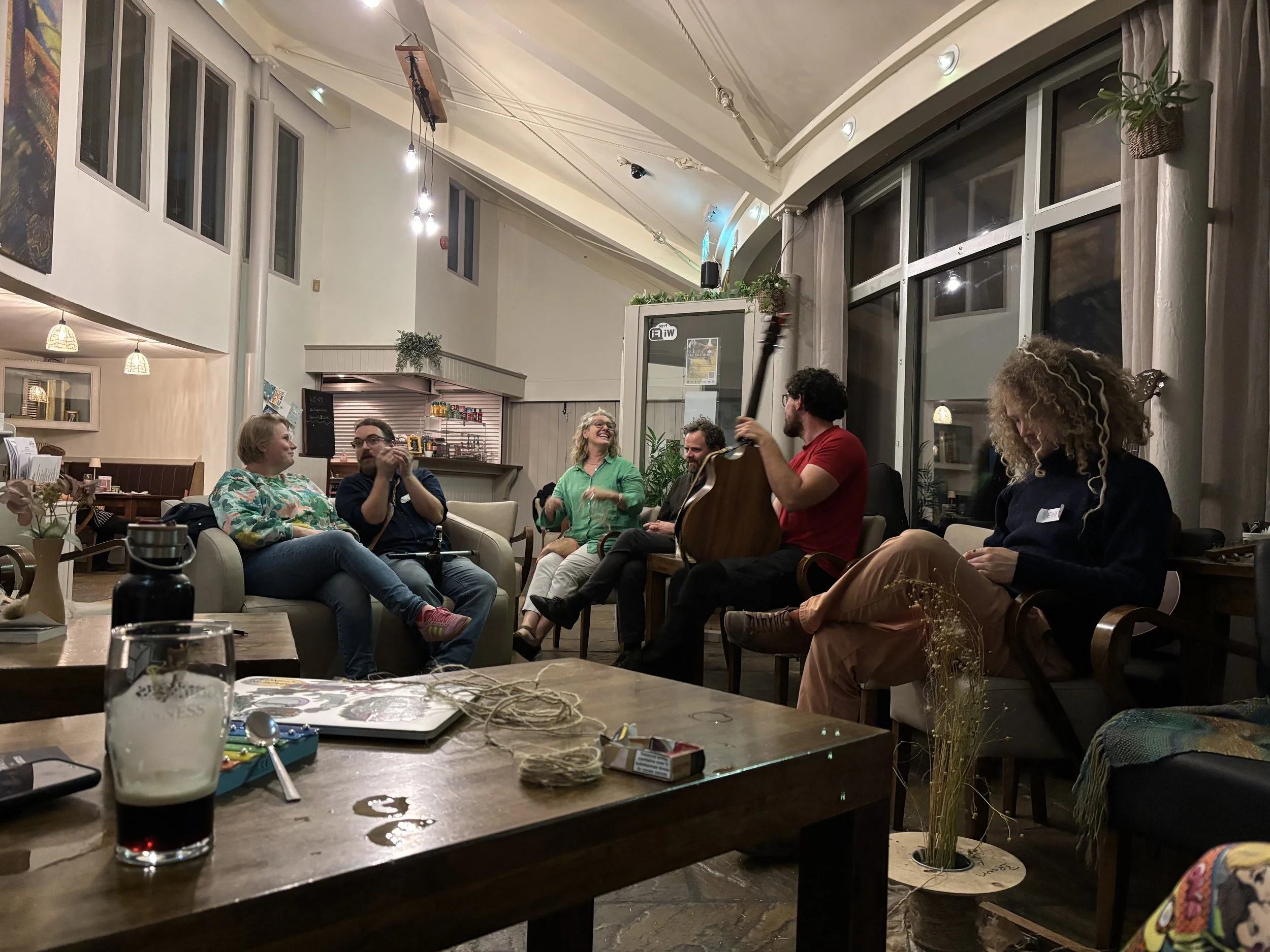
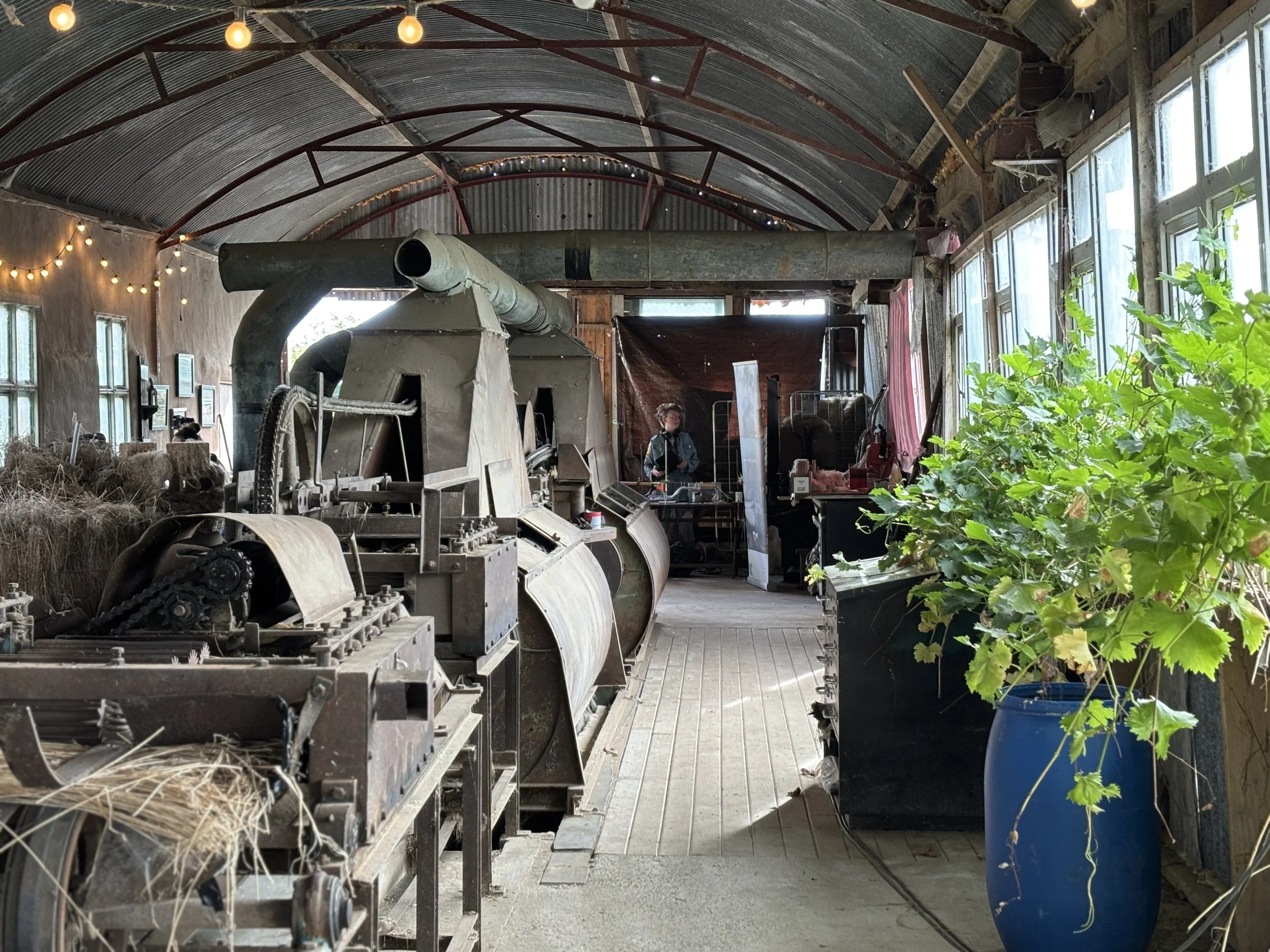
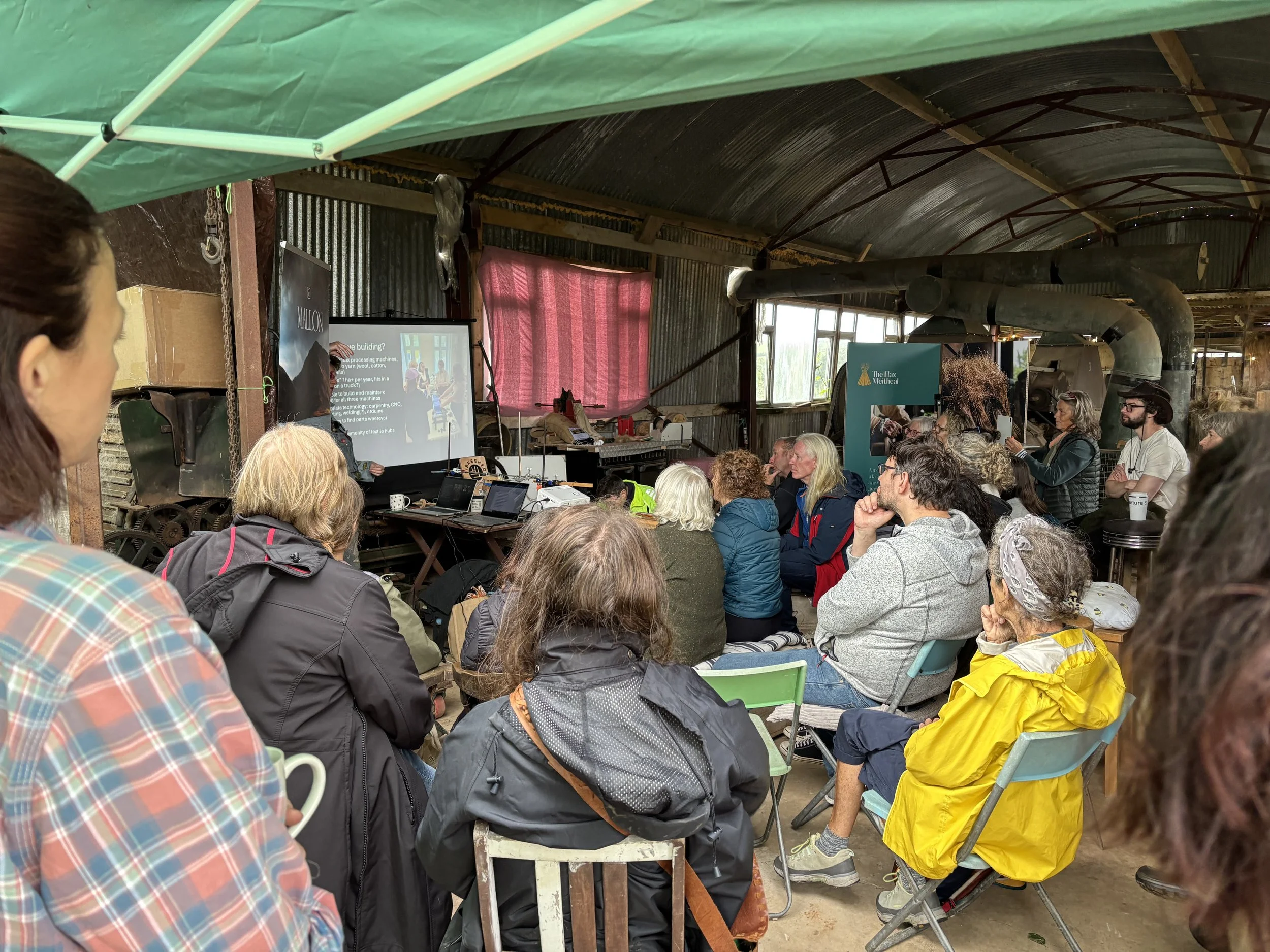
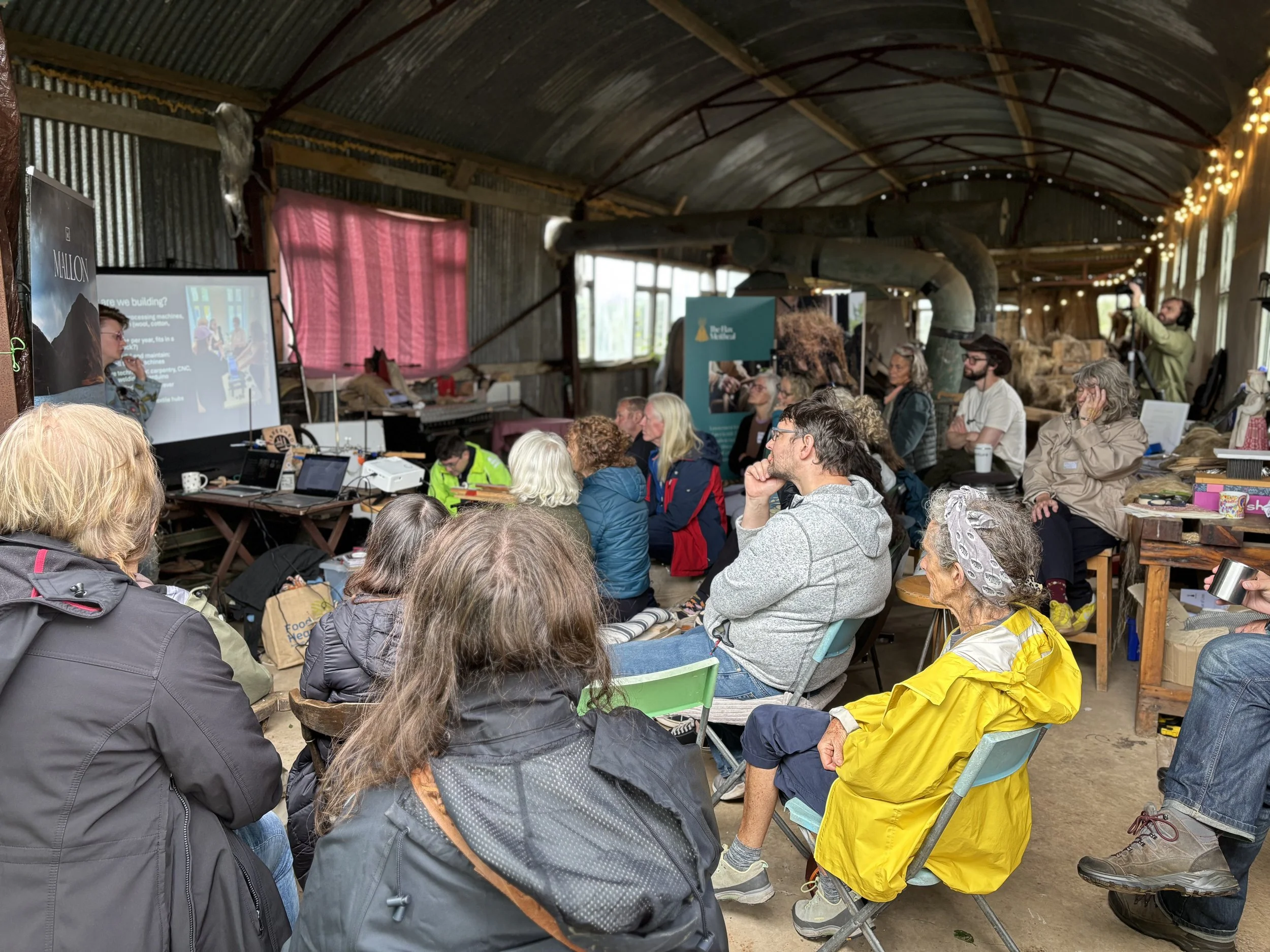
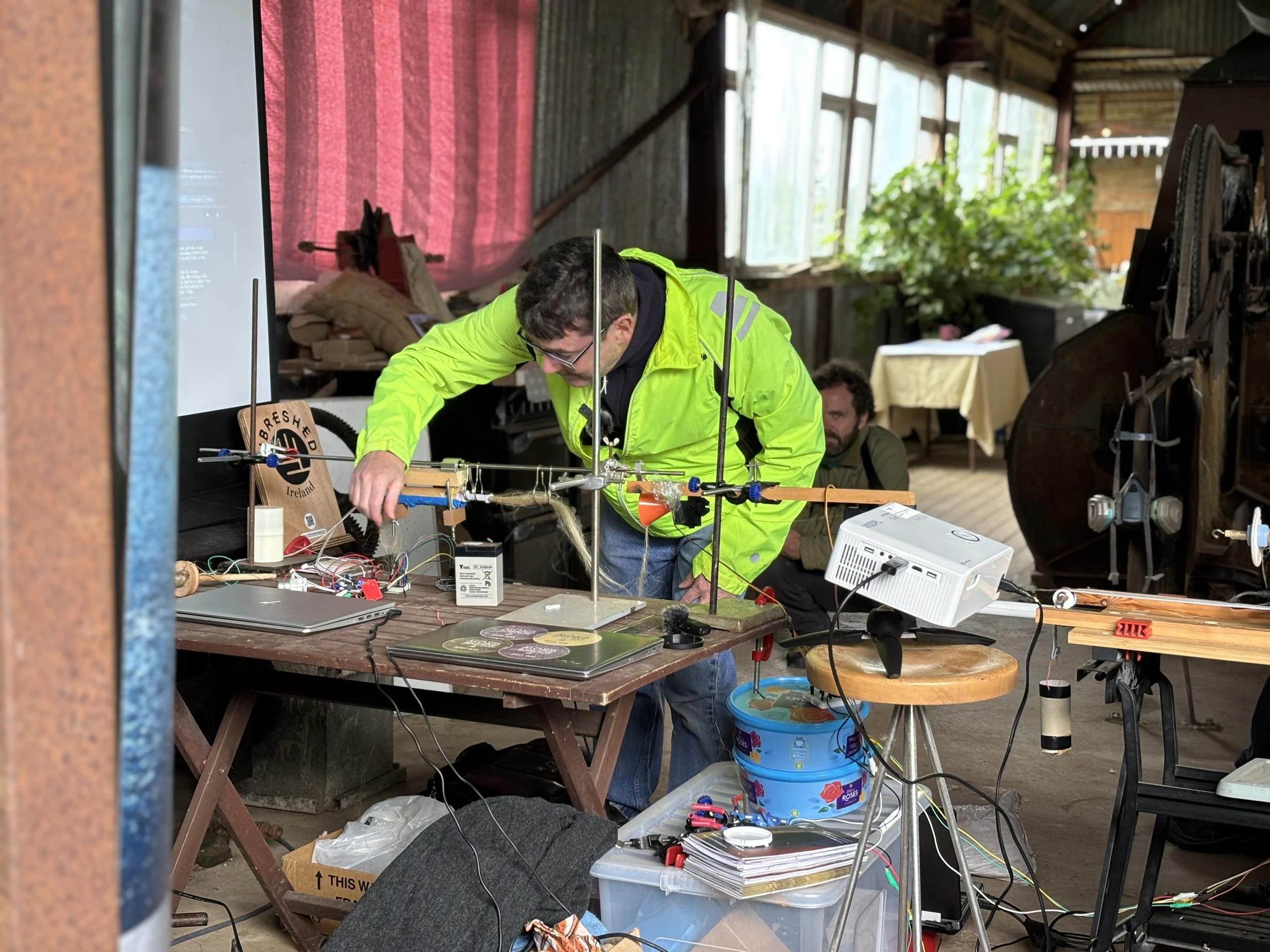

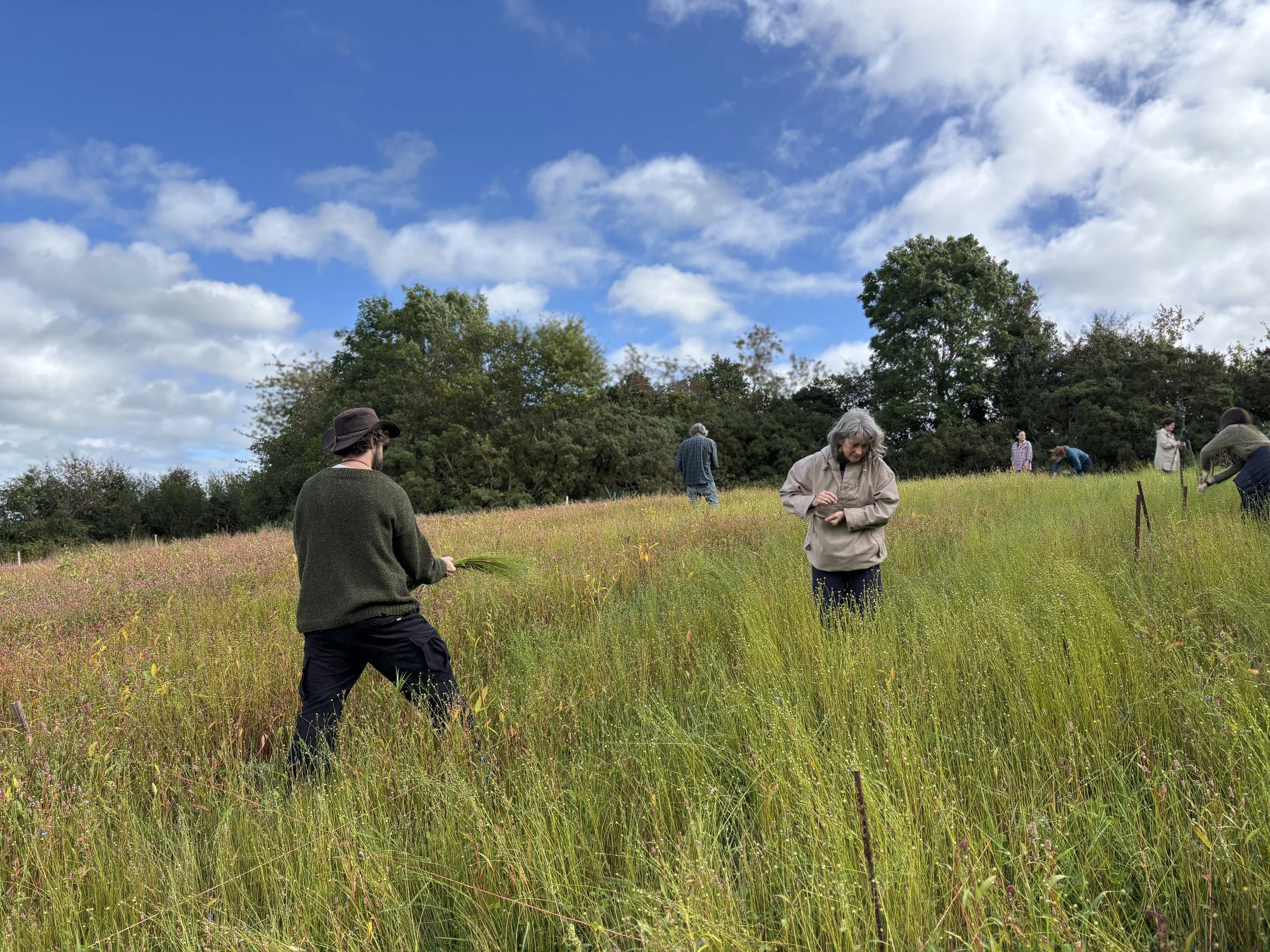
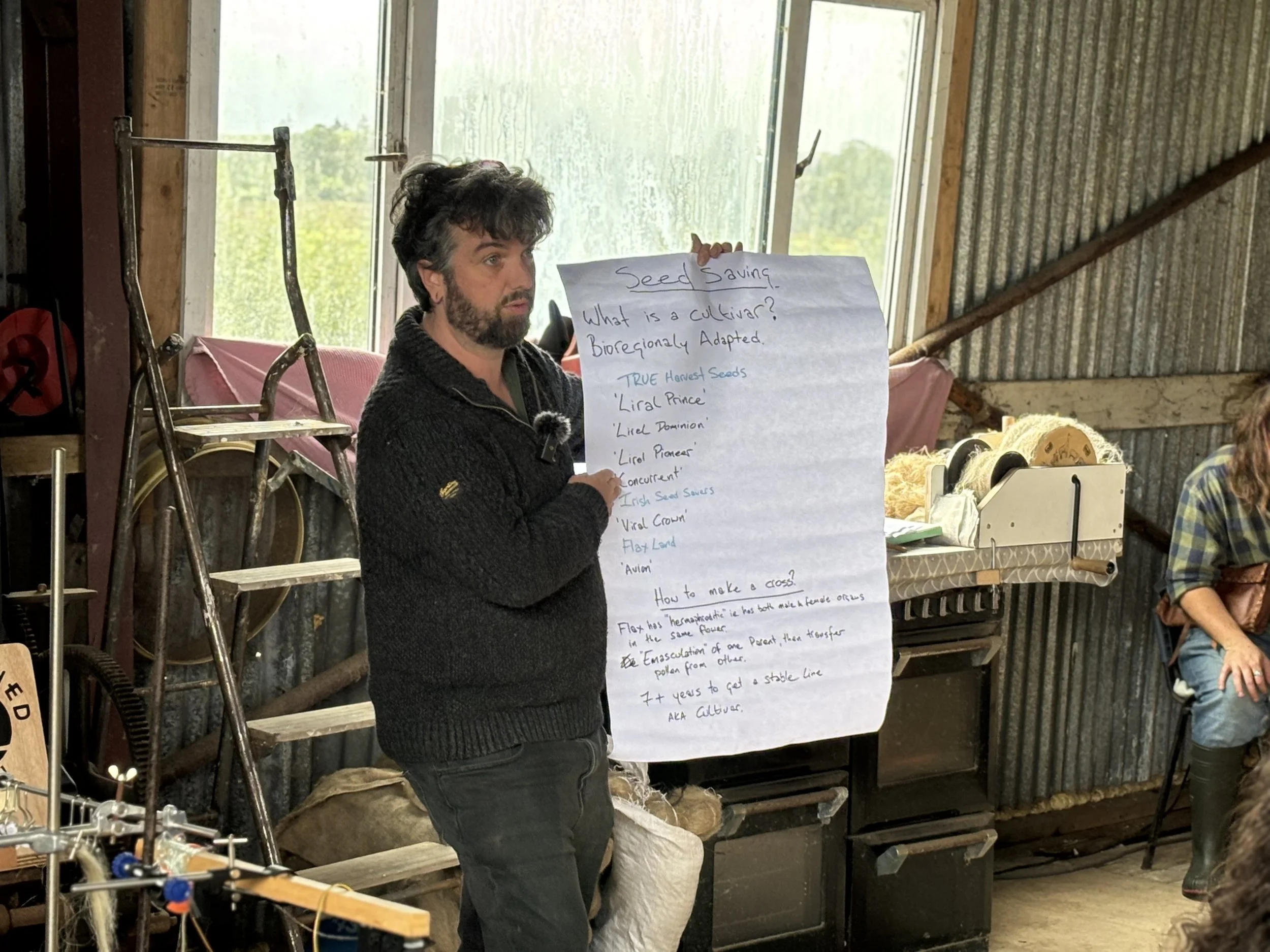
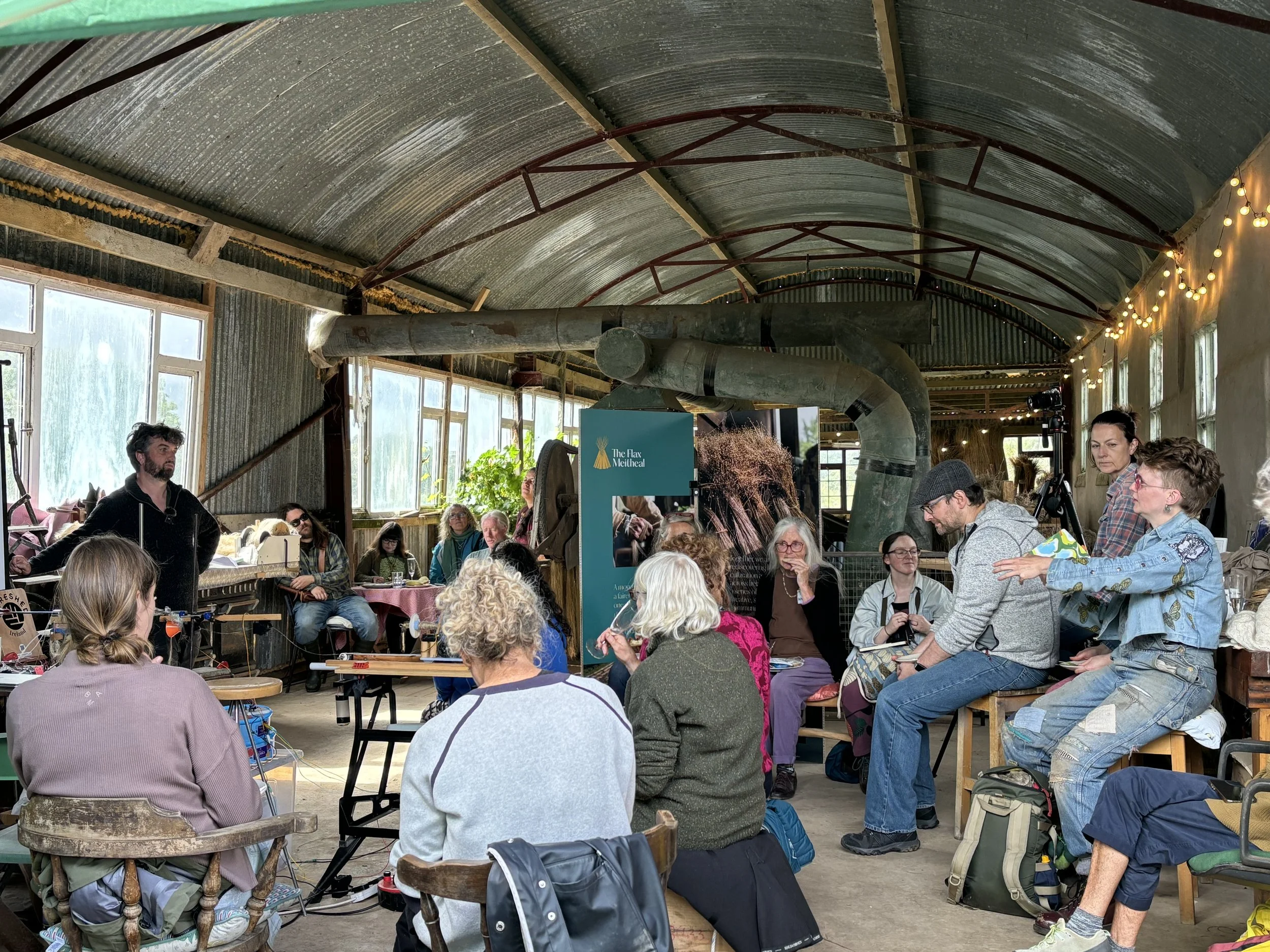
We gather in Ulster's midlands at An Creagan, Co. Tyrone for Friday evening set-up. The space feels right - small, focused, and deeply connected to this land. Vehicles arrive from near and far, packed with tools for sharing knowledge: flax tow, projectors, speakers, signboards, archives, samples. Most importantly, we are bringing people whose heads and hands know, simultaneously, how things once were here and how we might revive them. It will take a village, but this is why we gather.
A quiet night in rain-washed stone cottages gives way to a damp morning. A walk down through the woods and past the duck pond for more set-up and last-minute prep. Over breakfast, we catch up. It’s been months since the last flax-focused gathering. “How’s your summer been? What are you working on? Tell me about your latest project, the family, your dog...”
More people arrive - familiar faces as well as some new ones, drawn by curiosity and passion. They’ll fit right in. Malú, chair of Fibreshed Ireland, kicks off the day, welcoming everyone and reminding us why we are here: to build a better, fairer natural fibre future. The flax revival - or perhaps revolution. A video greeting from Marrion and Herman in South Germany. They talk of weaving and connection. The beauty of linen and the importance of flax. Their closing words of encouragement are ‘keep going, keep growing’.
We move to the Shuttles and Shafts exhibition discussion with Trish Belford and Paul Kelly. This archiving project focused on a unique collection of 1,600 photographic glass plates from the Ewart-Liddell factory, discovered in 2007. The archive represents the labour of skilled designers, draughtsmen and women, and weavers from 1900 to 1970. As Trish and Paul talk about digitising and organizing this extensive collection, archive and sample books are passed around the room. Trish shares the excitement of re-interpreting the designs in print and weave. We reflect on how many hands and minds were involved, noting comments and marginalia — those revealing spaces between the first idea and the finished design. What emerges is a sense of continuity: the many who built an industry, an ecosystem of specialist niches. That continuity leads us to the next panel, where lived experience takes over.
The panel, titled Learning from the Experts, introduces Lindsay Easson, Tiernan Stuart, and Brian O’Hara, with Charlie Mallon moderating. “Experts” — though they are — feels the wrong word; perhaps “experienced hands” fits better. These men share lived experience of the linen industry before its decline: the factories, the big exports, the hard labour of sewing and growing flax at scale. We discuss what went wrong, what we can learn, and how to move forward. The conversation is lively; lightbulbs pop as engineers, growers, and machinists bounce ideas around. Much of it is over my head, but one note stands out: embrace the crease! It seems good advice — we need not be perfect; creases show experience, shape, and movement.
Lunchtime. Yum. Warm soup and sandwiches while the weather worsens outside. That poor gazebo will host no demos today. The conversation continues, lively as ever with catch-ups, new connections, and the purchase of raffle tickets.
We regroup for New Applications of Flax with Helen Keys, Jane McCann, and Peter Quigley, moderated by Gawain Morrison. After learning about the past, we now focus on the present. Mallon Farm may not yet have produced linen cloth, but they have discovered surprising applications for the raw fibre and by-products of flax. Jane and Peter present their considerable research on flax composite materials. The eco-credentials are exceptional, but competition with steel and glass fibres is tough. The room questions whether big industry applications should even be the end goal for the product. Value may lie first in decorative, artisanal, design-led products. Tactile samples are passed around—one looks like cork but feels as dense as fibreboard. We imagine table tops, splashbacks, and other high-end finishes that do not harm the earth.
Next: Building a Flax Commons, presented by Zoe Gilbertson. Her research, which was supported by a 2024 Churchill Fellowship, explores Bioregional Resilience through Bast Fibres. She explored Europe by train and North America online to look for knowledge of machinery and cooperative methods to support the growing, processing and production of bast fibres such as flax and hemp on various scales. ‘Bioregional’, what a wonderful term for discussing land without naming borders. Weather and climate change heed no maps; we share this earth, and all our choices have a reverberating impact beyond us now and into the future. Zoe’s presentation demonstrates that our instinct for natural fibre production as a path toward ecological and social fairness has grounding. Learning from other places and practices shows it is not easy - but it's essential.
The last part of Saturday: collaborative work in a co-creation workshop, From Sow to Sew, facilitated by Fibreshed member Claire FitzGerald. Around the room smaller groups write newspaper headlines for 2030, visioning a world where young people understand where fibre comes from, synthetics are phased out, and local micro-production of natural fibres is the norm. Public tenders now value ecological impact over financial bottom lines. Big changes are built from sequences of small actions. We then map what is already here, exploring the puzzle pieces we can combine to go further.
Dinner. Ideas continue to fly. Raffle prizes are manifested and celebrated like they’re the winning lotto numbers. The rain stops, leaving a rainbow. Some head home, but many stay another night at An Creagan for ‘craic agus ceoil,’ the final item on the day’s agenda.
Guitars and whistles emerge. The staff let us take over the lounge, forming a big circle. Many hands make flax cordage for Kathy’s 400km project as we sing. Our new American friend, Ryse, teaches Scots-Gaelic songs and shares homebrewed gorse mead. Whiskey passes around in a leather bladder. Sweet songs played on guitar. A collective clean-up - remember it’s a meitheal - then back to the cottages for a few more scoops, songs and stories.
Sunday. Another soft morning breaks with only some slightly sore heads. Some of us are off early to help prepare the space at Mallon’s Farm, our Day 2 venue. A projector is set up in the scutching shed, surrounded by folding chairs and linen tablecloths draped over blue farm barrels. We regroup — a smaller, more intimate gathering today. Our comrades in farm-suitable clothing. Poet Abbey Olivera’s words open the morning and sets the tone, calling us to notice the bountiful hedges, the labour and the love for this place and the ‘gentle hard work’ of nature-friendly farming. We hear about new developments in open-source spinning machines from Rosie Bristow of Fantasy Fiber Mill and even get a demo of Tiernan Stuart’s prototype. It’s hopeful. Clever hands and minds taking action and not waiting for someone else to do it for them.
We just might be lucky with the weather. It’s still wild, but nothing like yesterday’s downpours, as we head to the flax field for harvesting. Helen and Charlie have high hopes — perhaps too high — of our ability to finish the field today. In truth, we’re probably too busy singing and chattering to get it all done. A BBC journalist drops by for a chat and a few photos. The sun even makes an appearance as we pull and stook the flax, picking carefully around the weeds in the last swath of the crop. This ‘gentle work’ is indeed hard, but the company makes it lighter.
Back in the scutching shed, a well-earned farewell lunch closes the weekend. Our final conversation is with Richie Walsh from the Gia Foundation’s seed sovereignty programme. Seeds are the foundation of any plant-fibre production, yet most available at scale are patented and imported from the Netherlands. Richie calls for more local growing, so we might develop varieties specific to our bioregion. The way forward begins simply: more people growing flax at every scale — in pots, in small plots, in fields. The more we grow, the more we learn, and the more we adapt. Richie has a great phrase: we grow to know.
That’s a good place to end this reflection, but the end of the meitheal is just another beginning. We grow to know not only flax, but each other and the possibilities of a more equitable future, connecting us to the land with care. We leave with new connections and a shared resolve: to keep gathering, keep growing, and to continue the gentle work of revolution. It will take a village — this is why we gather — and yet the seeds have already been sown, lets see what germinates.
written by Meadhbh McIlgorm, Linen Biennale Project Manager (freelance with R-Space Gallery).
THE FLAX MEITHEAL
A movement for a fairer textile future - one where natural, locally grown fibres are at the heart of a regenerative, place-based system.
Saturday 30 – Sunday 31 August
Meitheal, is the Irish tradition of cooperative work, where neighbours come together to support one another during labor-intensive seasonal tasks. In this contemporary meitheal, partners are harnessing art, design, technology, and cultural exchange to spark social change and environmental awareness. The project engages with flax and linen in a way that speaks to today’s world, while drawing on the wisdom of the past – blending craft and innovation to emphasize the vital connection between sustainability and creativity. It celebrates the power of creative collaboration: when we work together, we become more than the sum of our parts – many strands twisting into a stronger rope. More than a method of working, meitheal embodies a broader ethos of collective care, shared knowledge, and mutual aid.
Partners
Fibreshed Ireland Mallon Linen, Brink!, artpark Hoher Berg and Linen Biennale Northern Ireland
Supported by the Design & Crafts Council of Ireland, Cultural Bridge and The Co-Centre for Climate + Biodiversity + Water.
